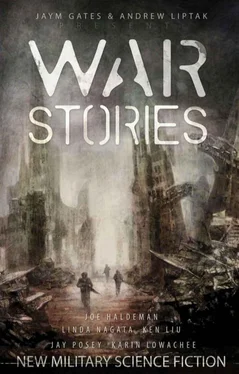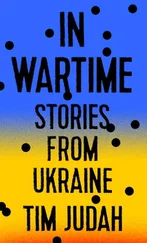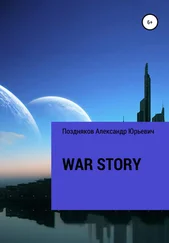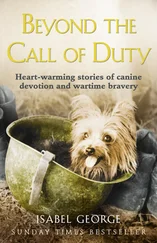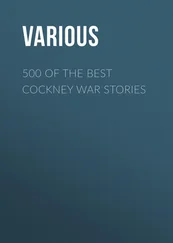She won prizes. Journalists sought her in person. She struck up an online friendship with a hacker in the Free Syrian Army, and when they discovered weeks later that they were both in the Za’atri camp, the future was written. The pregnancy came first, then a hasty marriage. A few years earlier this would have destroyed her family, but in Za’atri honor and shame were relics. They had never imagined the war would rage for nearly two decades. Never imagined it would end like this, in this frozen horror that was somehow worse than all that had come before. All that history had ground her down to almost nothing.
Her writing output was a lethargic trickle these days, and she was mostly forgotten. Mostly, but not entirely. She still knew people.
She started to compose an email.
§
It was around five o’clock that evening when Tariq came running to tell her that Wasp Keepers were approaching on the highway. She sent a text to Abu Hamza and Uncle Fouad, who were down at the gas station working, and then went to the bathroom to wash her face and reapply her makeup. When she was finished, she put on her hijab and went out to the porch. The convoy had just turned off the highway. A cluster of dusty children watched mutely from the side of the road, one of them holding a soccer ball under his arm.
The convoy consisted of a mine–resistant Army truck and a silver BMW surrounded by a swarm of Wasps. A squat steamroller the size of a Smart Car preceded the vehicles, feeling for IEDs buried in the road.
There were four soldiers, enveloped in so much armor and gear that the only things recognizably human about them were the square jaws exposed beneath the black goggles. When the first three dismounted, they went right past her and took up positions on the road. The fourth was a captain.
The captain nodded at her, then looked expectantly back to the BMW.
The sole occupant of the car was a Syrian man about her father’s age, dressed in a striped collared shirt and a dusty blue sport coat. AR glasses enveloped his face. He did not immediately get out of the car. His window was rolled down, and Um Hamza could hear that he was on a call, negotiating a price. He drummed one hand on the steering wheel and gesticulated with the other. He looked familiar, so while they all waited, Um Hamza discreetly snapped a photo of him and ran a search. The match was instant. The district police chief.
When he was finally finished, he got out of the car and both he and the captain came forward.
“As–salaam aleykum,” the captain said. He raised his goggles and there was a human face beneath, handsome and blonde and blue–eyed. “Ana kteer aasif likhsarit ibnik wa abooki.”
Um Hamza was impressed that this soldier had learned enough Arabic to say that. She also thought that if he offered any more sympathy for her loss, she would rip out his tongue and shove it down his throat.
§
The captain said that it would be best to visit the scene of the strike, so they walked down to the gas station, their Wasps a snarled cloud above them. The captain took off his helmet as they walked, a gesture Um Hamza knew was calculated to demonstrate trust, as if the mere act of exposing his sunburned scalp could somehow atone for the death of her boy and her father. By the time they reached the gas station they were pale with dust and the sweat ran down their backs. The captain introduced himself to Abu Hamza and Uncle Fouad, and then they all sat in plastic chairs in the customer service area adjacent to the auto shop while Tariq served Arabic coffee. When they were finished, he stacked the cups and sat down opposite the captain, glaring murderously at him. Um Hamza’s sister–in–law Noor arrived shortly after with a fruit tray and a bowl of dates. Um Hamza took the plate from her and offered it to the captain, and kept insisting until he finally took a single slice of apple. The police chief waved at her dismissively and lit up a cigarette.
“Why did you come?” Um Hamza asked while Noor poured a round of tea.
“You have some friends who really care about you,” everyone heard in a mechanical Arabic dialect. The captain subvocalized in English as a device on his chest translated.
“For God’s sake, turn that thing off,” Um Hamza said. “Which one was it?”
The captain shrugged and touched the device. In English he said, “Logan Keesler ran a story. It got noticed in Washington.”
Um Hamza translated for her family. “So they sent you to pacify me?”
“I just came to talk,” he said. His eyes were bloodshot and distant. He looked like he hadn’t slept in days. “You have the right to know why your son was targeted.”
“He was seventeen,” Um Hamza said.
The captain opened a camouflage bag at his side and handed them each a pair of AR glasses. Everyone turned them over in their hands suspiciously before putting them on. The captain said, “We know your family has been in the auto service industry for a long time. A whole chain of gas stations and auto shops before the war, right? You lost everything at the start of the war, but after three years in Za’atri, the three brothers returned home and got back into the business. It’s pretty remarkable you were able to finance all this.”
Um Hamza translated. Fouad glared at the captain.
The captain rose and stepped outside to survey the gas station. He said, “You made some interesting friends.”
They rose to join him so they could see what he was looking at.
A row of beat–up pickup trucks and vans was parked in front of the little masjid where customers could pray during gas stops. Gathered outside the door was a crowd of grim, thickly bearded Salafists toting handguns and AK–47s. The imagery was perfectly positioned and scaled, but it was black and white and heavily pixilated. While she watched, a younger clone of Uncle Fouad appeared and embraced one of the Islamists. They exchanged kisses on their cheeks.
“They were fighting the regime,” Fouad said in Arabic. “They just came to pray.”
“Understandable,” the captain said without missing a beat. He was probably still receiving machine translations. “But you spent hours with them. And they came a lot. Even after you knew they were pledged to al–Qa’eda, even after they toppled the regime and created their own government and you saw what they were capable of. Your brother Abu Khalid led prayers for them. He sat for hours with them teaching them about Islam. I don’t think it’s an exaggeration to say he was a spiritual mentor of sorts.”
“He taught anybody who would listen,” Um Hamza protested. “He thought they were misguided, maybe not even Muslim, but he thought the answer to that was more Islam, more truth.”
“And that’s why he smuggled weapons for them?”
Um Hamza broke into tears. The captain knew so much, he knew everything, and yet he understood nothing. It was all wrong , it was all cameras and robots and a string of connected dots that added up to something different from the wretched story they had lived.
She remembered when the Islamists first turned up at their gas station. Uncle Fouad, as it turned out, had worked some kind of deal with a mujahideen group in the Za’atri camp. They’d needed to smuggle weapons and ammunition into Syria, which meant they needed someone who knew vehicles and logistics. Fouad had acquired startup capital, bought the gas station, and used his contacts on both side of the border to build up a logistics network to import auto parts into Syria. Auto parts, that is, with a few bonus packages in the mix.
It had seemed a small enough thing, the kind of shadow bargaining on which survival depended in those violent days, but that deal took on a life of its own. The gas station got a reputation. Anti–regime fighters converged there, both the moderate types who’d been trained by the Americans in Jordan and the sneering Salafists who were just as likely to kill insufficiently pious Sunnis as they were regime soldiers. At first they negotiated business deals. Then they asked favors. Then they made demands. Uncle Fouad said no precisely one time. That experiment ended with Uncle Hatim, the third brother, dead in a ditch after torture by power drill.
Читать дальше
